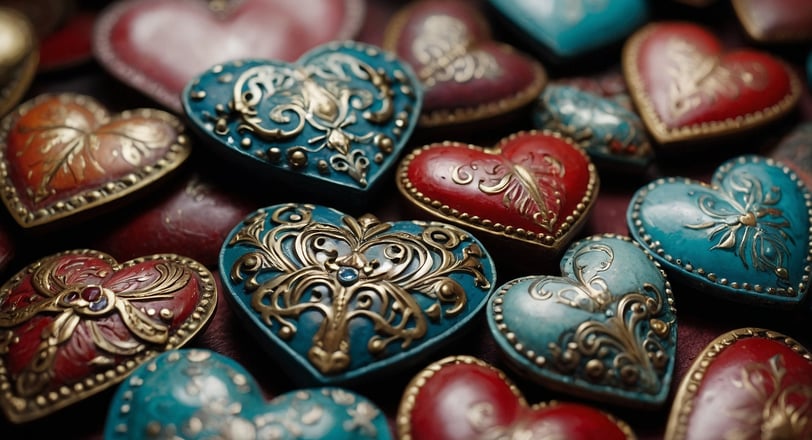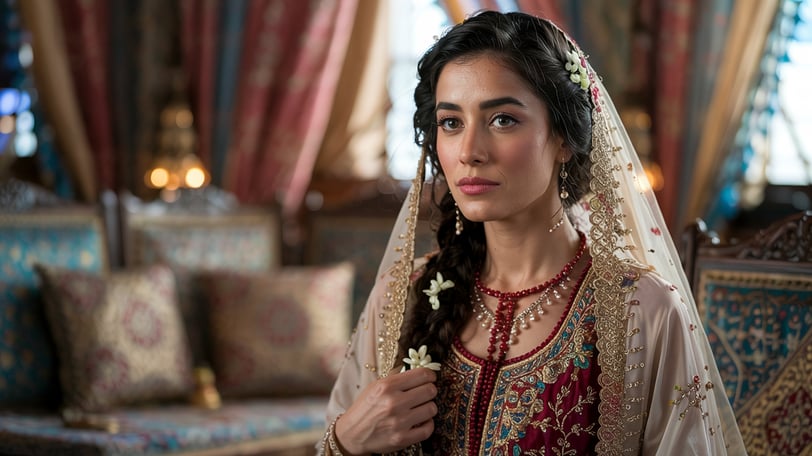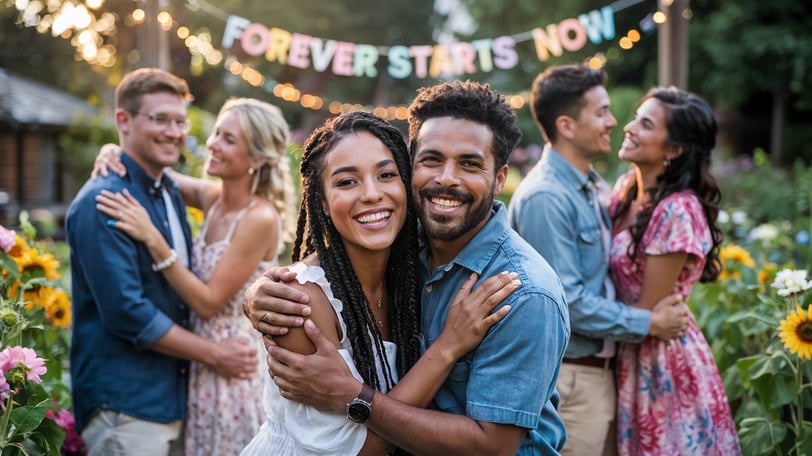Love in Different Cultures: Celebrating Diversity in Relationships
Discover how love is expressed across diverse cultures around the world. From romantic traditions to unique relationship customs, explore meaningful perspectives on commitment, family, and affection in this in-depth look at love in different cultures.


Love is something we all experience, no matter where we come from. It’s a powerful emotion that crosses borders, languages, and traditions. But while the feeling itself is universal, I’ve always found it fascinating how differently love is expressed around the world. Every culture has its own unique way of showing affection, building relationships, and celebrating connection. As I explore these diverse customs and beliefs, I gain a deeper appreciation for the beauty and complexity of human love. In this article, I want to take you on a journey through various cultural practices and traditions that reveal just how wonderfully diverse love can be.
Cultural Perspectives on Love
1. Western Cultures: Romance and Individualism
In Western cultures, particularly in countries like the United States and European nations, love is often associated with romantic gestures, personal fulfillment, and the pursuit of individual happiness. Romantic love is celebrated through traditions such as Valentine's Day, where couples exchange gifts and express affection openly.
Western societies value personal autonomy and often emphasize the importance of finding a soulmate or partner who fulfills emotional and romantic needs. Dating is a common practice, allowing individuals to explore relationships before committing to marriage or long-term partnerships.
2. Asian Cultures: Family Harmony and Duty
In many Asian cultures, including China, Japan, South Korea, and India, love is deeply intertwined with family values, duty, and respect for tradition. Relationships are often viewed through the lens of family harmony, and the concept of filial piety plays a significant role in partner selection and marriage.
Arranged marriages, where families play a crucial role in matchmaking based on factors such as social status, compatibility, and family reputation, are still prevalent in some Asian societies. These marriages are seen as a union not only between individuals but also between families, ensuring continuity and stability.


3. Middle Eastern Cultures: Tradition and Commitment
Middle Eastern cultures, such as those in Saudi Arabia, Iran, and Turkey, place a strong emphasis on tradition, respect, and commitment in relationships. Marriage is viewed as a sacred bond that extends beyond the union of individuals to include the merging of families and communities.
In Islamic cultures, marriage is considered a cornerstone of society and a religious duty. Families often play a central role in arranging marriages, ensuring compatibility, shared values, and religious beliefs. The emphasis is on building a strong foundation for family life and fostering mutual respect and support between spouses.
4. African Cultures: Community and Ritual
Across various African cultures, love and relationships are often celebrated through communal rituals and ceremonies that involve the entire community. These ceremonies symbolize unity, fertility, and the continuation of family lineage, reflecting the interconnectedness of individuals within the community.
Marriage in African cultures is not only a union between two individuals but also a union between families and communities. Elders and community leaders play a significant role in matchmaking, ensuring that marriages strengthen social ties and promote communal harmony.


Celebrating Diversity in Love
Each cultural perspective on love offers unique insights into the values, beliefs, and traditions that shape relationships within their societies. Embracing diversity in love allows us to appreciate the richness of human experiences and the universal desire for connection and companionship.
Embracing Cultural Differences
Tips for Embracing and Understanding Cultural Diversity in Relationships:
Educate Yourself: Take the time to learn about different cultural norms and practices surrounding love and relationships. Read books, watch documentaries, and engage in conversations with people from diverse cultural backgrounds.
Respect Differences: Approach cultural differences with an open mind and respect for traditions that may differ from your own. Avoid making assumptions or judgments based on stereotypes.
Celebrate Diversity: Embrace opportunities to celebrate cultural diversity in love through festivals, events, and shared experiences. Participate in cultural celebrations and rituals to gain a deeper understanding of different perspectives on relationships.
The Impact of Globalization on Love and Relationships
In an increasingly interconnected world, globalization has influenced how cultures perceive and practice love. Through media, travel, and migration, people have greater exposure to diverse cultural perspectives on relationships, leading to a blending of traditions and values. Globalization has also facilitated cross-cultural relationships and marriages, fostering understanding and collaboration between individuals from different cultural backgrounds.
Exploring how love is experienced in different cultures has opened my eyes to the beauty and depth of human connection. It’s made me realize just how many ways people can express care, commitment, and affection—and how each one is meaningful in its own right. By embracing these differences, I’ve come to appreciate the diversity that shapes our relationships and the values we hold dear. Whether it’s the romantic gestures common in Western cultures, the emphasis on family harmony in many Asian traditions, the deep-rooted customs of the Middle East, or the strong sense of community in African cultures, love continues to be a force that brings us together. And for me, that’s one of the most inspiring things about being human.
